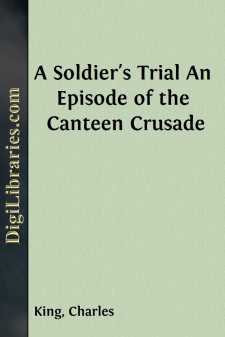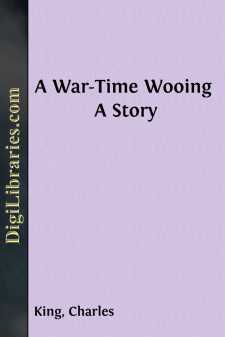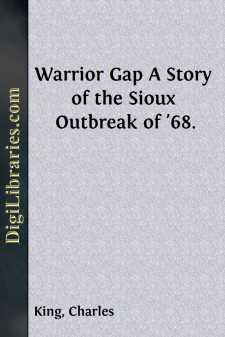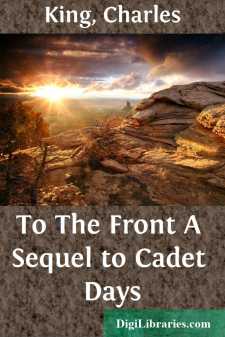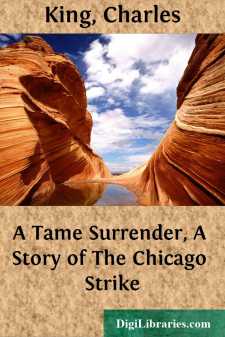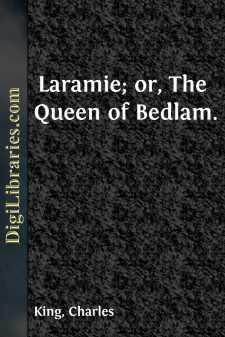Categories
- Antiques & Collectibles 13
- Architecture 36
- Art 48
- Bibles 22
- Biography & Autobiography 813
- Body, Mind & Spirit 142
- Business & Economics 28
- Children's Books 17
- Children's Fiction 14
- Computers 4
- Cooking 94
- Crafts & Hobbies 4
- Drama 346
- Education 46
- Family & Relationships 57
- Fiction 11829
- Games 19
- Gardening 17
- Health & Fitness 34
- History 1377
- House & Home 1
- Humor 147
- Juvenile Fiction 1873
- Juvenile Nonfiction 202
- Language Arts & Disciplines 88
- Law 16
- Literary Collections 686
- Literary Criticism 179
- Mathematics 13
- Medical 41
- Music 40
- Nature 179
- Non-Classifiable 1768
- Performing Arts 7
- Periodicals 1453
- Philosophy 64
- Photography 2
- Poetry 896
- Political Science 203
- Psychology 42
- Reference 154
- Religion 513
- Science 126
- Self-Help 84
- Social Science 81
- Sports & Recreation 34
- Study Aids 3
- Technology & Engineering 59
- Transportation 23
- Travel 463
- True Crime 29
A Soldier's Trial An Episode of the Canteen Crusade
by: Charles King
Description:
Excerpt
TWO ANNOUNCEMENTS
The war with Spain was at an end, and so were the hopes and aspirations of many a warrior. For several reasons Colonel Ray of the ——th Kentucky was a disappointed man. One of the best soldiers doing duty with the volunteers, he had had some of the worst luck. Through long years of service in the regular cavalry he had borne the reputation of being a most energetic and valuable officer. He had won a name as an Indian fighter the Indians themselves respected. He had campaigned all over the frontier before the railways came and conquered. He knew Arizona and New Mexico even better than his native State, and was known from the upper Missouri to the lower Colorado far more generally than in the "blue grass" country of his boy days. Apache and Arapahoe, Comanche and Cheyenne, Sioux and Shoshone, they all had met, and many had measured spear with, the dark-eyed, curly-headed Kentucky light-horseman. He bore the scars of more than one sharp encounter; had given more than he had received, yet found himself in no wise blessed with profit or promotion. The Civil War was fairly ended when he stepped from the Point into his first commission. Over thirty years had he done valiant and faithful duty in the line, yet was he only just wearing the gold leaves as junior major of his regiment, when the long-expected happened in the spring of '98, and the nation called out its first levy of volunteers. Slow as had been his advancement, it was phenomenally swift as compared with that of classmates who, choosing the artillery arm, had languished those thirty years in the line of file closers. Ray had no complaint to make. He was even rejoiceful in his luck when called to Kentucky to command one of her regiments of volunteer infantry. He was, indeed, among the few envied men in the army where so very few have anything to excite the cupidity of their kind. His record and reputation were things no man could undermine, though some might underestimate. His temperament was sweet and sunny. He had long been happily, most happily, married. His wife was charming, admired, and beloved. His children were all a father's heart could wish. Health and competence had always been theirs. They had, indeed, for years known the joys of moderate wealth, for Mrs. Ray had brought her husband something besides beauty and grace, physical and spiritual. The Marion Sanford of the Centennial year of '76 was reputed an heiress, and the children that had come in course of time to bless their union were certainly born to the purple. But army people of those days lived long years in the far West, had to trust their business affairs to agents in the far East, and some agents could not stand such prosperity. Mrs. Ray's property was mainly in real estate, some of which became gradually unproductive. Then there came the financial storm of '93, and a subsequent flitting of financial agents, some to the convenient Canadas, some to the Spanish Main.
Then another thing happened, almost whimsical in the way of retributive justice where Mrs....


